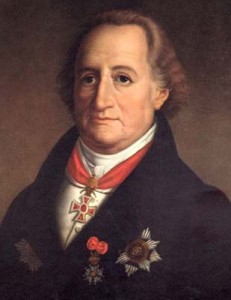 When something goes wrong (anywhere – in your office, at headquarters, in the national news, even around the dinner table reviewing your family’s day) have you ever heard (or said), “Well, what did you expect?” Usually that question is followed by a knowing glance, a wistful shaking of the head or an ironic laugh.
When something goes wrong (anywhere – in your office, at headquarters, in the national news, even around the dinner table reviewing your family’s day) have you ever heard (or said), “Well, what did you expect?” Usually that question is followed by a knowing glance, a wistful shaking of the head or an ironic laugh.
Yet when something goes right, people don’t ask the same question. Instead those successes typically are chalked up to hard work, or even to luck.
Is it possible that expectations (i.e. “what did you expect?”) play a role in only those things that go bad or less than desired?
I don’t think so.
At some level, we believe expectations matter, or we wouldn’t ask the question when things go badly.
In reality, we have known for a long time that expectations matter – consider this:
“Treat people as if they were what they ought to be, and you help them to become what they are capable of being.”
That was written by the German writer and scientist Johann Wolfgang von Goethe – a long time ago (he died in 1842). Why would we treat people in a certain way if we didn’t expect they could live up to it?
So let me ask you a question.
What do you expect . . .
. . . of your co-workers?
. . . of your team?
. . . of your Customers?
. . . of your boss?
. . . of your relationships?
. . . of your family?
. . . of yourself?
Interestingly we always have expectations. Perhaps yours are generally positive, perhaps they are positive in some situations or with some people, or perhaps you keep your expectations low because “you don’t want to be disappointed” (if that the latter is the case, I’m guessing at some level you still are disappointed). Or, maybe your expectations are completely subconscious – you never give them a thought, one way or the other.
Once we believe, or are reminded, that expectations can play a powerful role in modifying the outcomes of events (even if that role is invisible), we can determine what we are going to do about it. So, it makes sense to be more conscious about our expectations so we can examine and modify them as desired.
I believe there are two steps in this process: choose your expectations and create a habit.
Make a Choice
Once your expectations are conscious, you have a choice to make. And that choice really comes down to answering the question “What do I really want?” and then creating an expectation mirroring that desire. Create the expectation and then think about it regularly. If you are noticing a small (or large) voice of doubt in your mind, you haven’t set the expectation clearly or firmly yet.
Remember you can expect great success, and still be happy or satisfied when the outcome isn’t perfect. Expectations alone (with our effort, action, etc.) aren’t a golden ticket or a guarantee, but everything else being equal, positive expectations will positively impact your outcome. So why not choose positive expectations?
Create a Habit
Perhaps your conscious (or subconscious) expectations have been low for a long time, or maybe you have never considered this as a choice before. Either way, when you make the choice to have positive conscious expectations once, you can then make that a new habit. Regularly consider a future event, small or large (how the meeting will go, whether the project will be a success, if your kids will get in before curfew), and set your expectations of that situation positively.
Create the habit of a positive expectancy and you will be surprised how quickly your results will change for the better.
This invisible, almost magical, process is real. Your expectations are already impacting your results. My challenge to you is to raise your level of expectations as a way to improve your results, satisfaction and happiness.
The choice is yours.
——————————————————————————–
Potential Pointer: Your expectations are far more powerful than you give them credit. The habit and choice of having a positive expectation for any person or outcome will have a real impact on your outcomes. While it isn’t a guarantee, it is one of the most powerful things you can do to improve your life and results.

0 comments